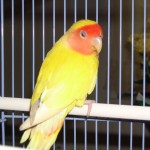I’d like to share with you all some examples of times when I have caged the learning of gifted students; sometimes this has resulted in challenging behaviour. I’ve also discussed adaptations that would have helped uncage each student. It would be great if you can post some of your own ideas.
Scenario 1
Student A: A higher-able grade 6 student with strengths across the curriculum, especially with receptive and expressive language. He had experienced a challenging upbringing, would frequently challenge authority, and try to disengage his peers.
Mistake Made: During class discussions, I believe that I always adopted the leadership role and also generally chose the topic for discussion.
Consequence of Mistake: Students were obviously given opportunities to speak but Student A would mock responses of other students and also the teacher; many times he openly sang, chanted, or shouted above other students.
Possible Adaptations: Topics should have been chosen by the students; discussions would be more likely to be engaging and thus students would be motivated to remain on-task. Indeed, students may have been placed in like-minded groups and been given the freedom to choose the topics that they were interested in. What is more, Student A should have been given further opportunities to use and develop his oral language skills. For example, he could have been given leadership opportunities, providing him with the chance to paraphrase students’ thinking or elicit deeper responses with critical questions.
Scenario 2
Student B: Grade 4 student with a very supportive, involved, and positive family. Her behaviour was exceptional and her work consistently met the criteria.
Mistake Made: In Math, I taught this student objectives from the grade 4/5 curriculum. She generally did the same work as her peers with some adaptations.
Consequence of Mistake: Student B was not given the freedom to truly exploit her learning potential; she was merely going through the motions and picking up her exceptional grades.
Possible Adaptations: This scenario highlights motivational issues discussed by Alexander and Schnick (2008); sometimes a gifted student’s processing abilities, challenge needs, and questioning needs do not match a teacher’s view of learning and assessment. Before each unit, Student B should have been assessed for her current learning; it was likely that she had already achieved many of the objectives and thus curriculum compacting should have been implemented. Project-Based Learning opportunities were required, where she would have been free to create her own learning to solve a real-life problem. VanTassel-Baska and Wood(2010) discussed the need to create units that provide higher-order thinking and processing opportunities. She was motivated and resourceful enough to try to solve this independently but it would have been great to partner her with a higher able grade 5 student on completing projects.

